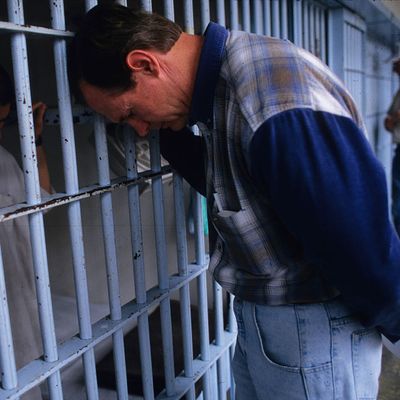
Last week, the Supreme Court blocked Texas from executing a Buddhist inmate, Patrick Murphy, stating that he was entitled to have a spiritual adviser present in the execution chamber, just as a Christian inmate would be permitted to have a priest at his or her side. The decision came a little over a month after the Court ruled in a nearly identical case against a Muslim death-row inmate in Alabama, Domineque Ray, who requested his imam be present at the time of his execution.
The difference in the two cases was Judge Brett Kavanaugh, who sided with the liberal justices on the Texas proceeding. In a separate opinion agreeing with the Court’s decision, Kavanaugh determined that the Texas Department of Criminal Justice must go all or nothing: either expand the program so that all inmates may have a religious adviser at their side during executions, or no one is afforded the option.
“We are pleased the Supreme Court acknowledged both that Mr. Murphy, as a Buddhist, is entitled to be accompanied in the execution chamber during the execution by a minister of his own faith, just as a Christian would be,” Murphy’s attorney wrote in a statement. Murphy enjoyed that theoretical entitlement for five days, until Texas decided it would cut the pastor program entirely.
On Tuesday, the state signed new procedures saying that chaplains and ministers must “observe the execution only from the adjacent witness rooms, where media and friends and family of the murder victim and prisoner are also present.” A spokesperson for the Texas Department of Criminal Justice told the Texas Tribune that “TDJC Chaplain(s) will continue to be available to an offender until they are transferred to the execution chamber” and that prisoners can still meet with a TDCJ chaplain on the day of execution. Only Christian and Muslim clerics are employed by the state as TDCJ chaplains.
Since the death penalty was reinstated in 1976, Texas has executed 560 inmates — more than five times as many prisoners as any other state. In 2019, the state intends to execute five inmates in addition to Patrick Murphy, who was one of a group of seven who escaped from prison in 2000 and committed multiple robberies before killing a police officer outside of Dallas. There are currently 221 inmates on death row in the state.
Texas’s decision to strip religious privileges from death-row inmates is ethically in line with a similar, if more physically distressing decision made by the Supreme Court earlier this week. On Monday, in a case in which a death-row inmate in Missouri would face “excruciating pain” during lethal injection due to a medical condition, the Court ruled 5-4 that the inmate, Russell Bucklew, was not entitled to an alternative method of execution. Writing for the majority, Justice Neil Gorsuch wrote that the Eighth Amendment, which bars cruel and unusual punishments, “does not guarantee a prisoner a painless death.”






























